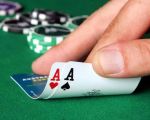- 1 - Understanding Best Poker Tables for Beginners at a Casino
- 2 - Key Features to Look for in Beginner Poker Tables
- 3 - How to Select the Right Table Based on Your Skill Level
- 4 - Real Experience and Case Studies from New Players
- 5 - Tips for Maximizing Your Beginner Poker Table Experience
- 6 - Finding Best Poker Tables and Resources
1. Understanding Best Poker Tables for Beginners at a Casino
For those just stepping into the thrilling world of poker, choosing the right environment to learn and play is crucial. The best poker tables for beginners at a casino are not simply about comfort or aesthetics—they play a significant role in shaping a new player’s confidence, learning curve, and overall experience.
Beginners often face challenges such as understanding game flow, managing bets, and reading opponents. A well-chosen poker table can ease these difficulties by offering appropriate stakes, accommodating fewer players, and providing a supportive atmosphere. Recognizing what makes a table suitable for beginners helps novice players avoid unnecessary stress and focus on developing their skills.
2. Key Features to Look for in Beginner Poker Tables
2.1 Low Stakes and Affordable Buy-ins
One of the most important aspects of beginner-friendly poker tables is the availability of low stakes and affordable buy-ins. This allows new players to experiment with strategies without risking large sums of money. Casinos often designate specific tables for beginners with minimum bets tailored to reduce pressure and encourage participation.
2.2 Smaller Player Count and Table Size
Tables with fewer seats—typically six to eight players—offer a less intimidating environment compared to full-ring tables seating nine or ten players. Smaller groups allow beginners to engage more actively, observe opponents closely, and receive more hands per hour, accelerating learning.
2.3 Clear and Comfortable Layout
Beginners benefit from tables designed with clear chip placement, readable betting areas, and comfortable spacing. A well-organized layout reduces confusion, enabling players to focus on game strategy rather than logistics.
2.4 Dealer Assistance and Friendly Environment
Casinos that assign experienced dealers to beginner tables contribute greatly to a supportive learning atmosphere. Dealers can clarify rules, enforce fair play, and help maintain pace, all of which foster confidence in new players.
3. How to Select the Right Table Based on Your Skill Level
3.1 Self-Evaluation of Poker Knowledge and Experience
Before choosing a table, beginners should honestly assess their understanding of poker rules, hand rankings, and basic strategies. This self-awareness guides players to select tables that match their current abilities, avoiding frustration or boredom.
3.2 Observing Table Dynamics Before Joining
Spending time watching a table in action provides insight into the playing style, pace, and skill levels of opponents. Beginner players should look for tables where others appear patient and less aggressive, promoting a more forgiving learning environment.
3.3 Starting with Tournament or Cash Game Tables
Beginners may consider whether they prefer tournament-style play, which often has structured blind increases and eliminations, or cash games with consistent stakes. Both offer unique learning opportunities; the choice depends on personal preference and risk tolerance.
4. Real Experience and Case Studies from New Players
4.1 Case Study: Emily’s First Night at a Casino Poker Table
Emily, a newcomer to poker, shared her experience on a popular gambling forum. She chose a low-stakes beginner table at a local casino and credits the friendly dealer and small table size for helping her stay calm and learn the game faster. Within a few sessions, her confidence improved notably, illustrating how the right environment accelerates skill development.
4.2 Community Insights: The Importance of Patience and Table Selection
Many beginners echo the sentiment that patience is key. Joining the best poker tables for beginners at a casino—those with lower stakes and welcoming atmospheres—creates space for mistakes and learning, which seasoned players often overlook but is essential for novices.
5. Tips for Maximizing Your Beginner Poker Table Experience
5.1 Take Notes and Review Hands
Keeping a notebook or mental notes about hands played, opponent behaviors, and betting patterns helps deepen understanding. Reviewing these notes after sessions can turn casual play into deliberate learning.
5.2 Ask Questions and Use Dealer Guidance
Never hesitate to ask the dealer or more experienced players about rules or strategies. A beginner-friendly table usually encourages such interaction, which enhances the learning curve.
5.3 Manage Bankroll Wisely
Set limits on how much money to bring to the table and avoid chasing losses. Playing at beginner tables with appropriate stakes ensures bankroll management remains feasible and stress-free.
6. Finding Best Poker Tables and Resources
Choosing the right poker table is only one part of the journey. To find the best poker tables for beginners at a casino and get tailored advice on venues, stakes, and learning tools, visit CasinoScope. This platform offers comprehensive reviews and recommendations to help beginners make informed choices and enhance their poker experience.
Whether you are stepping into your first casino or looking to improve your game, CasinoScope provides curated guidance on the most beginner-friendly poker tables and services, helping you build skills and enjoy every moment at the table.








